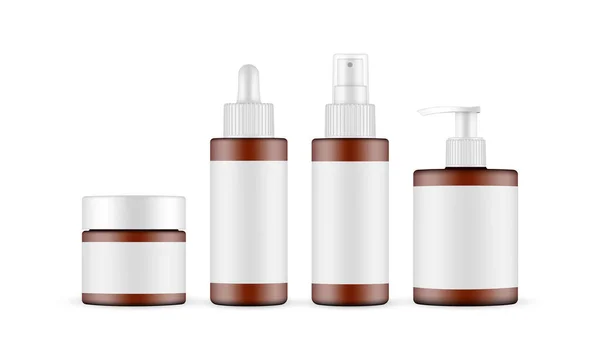
What Is Medical Grade Skincare
Medical grade skincare refers to products that are formulated with higher concentrations of active ingredients and are clinically tested to deliver noticeable results.
These products are often available through dermatologists and licensed medical professionals. They are designed to treat specific skin conditions and provide deeper, more effective treatment than over-the-counter options.
Medical grade skincare is known for its efficacy, quality, and safety. It’s a trusted choice for those seeking advanced skincare solutions.
Understanding Medical Grade Skincare
Medical grade skincare products are scientifically formulated to address a wide range of skin concerns, such as acne, aging, hyperpigmentation, and rosacea.
These products contain higher concentrations of active ingredients like retinoids, peptides, and growth factors. The formulations undergo rigorous clinical testing to ensure they provide effective results.
Unlike over-the-counter products, medical grade skincare penetrates deeper into the skin, targeting the underlying issues and promoting long-term skin health.
Dermatologists and skincare professionals often recommend these products for their proven efficacy and superior quality.

Benefits of Medical Grade Skincare
One of the main benefits of medical grade skincare is the potency of its active ingredients. These products are designed to deliver therapeutic results, which means they can significantly improve skin texture, tone, and overall appearance.
Ingredients like hyaluronic acid, vitamin C, and niacinamide are commonly used to provide hydration, reduce inflammation, and promote collagen production.
Additionally, medical grade skincare products are formulated to be safe for various skin types and conditions, ensuring minimal risk of irritation or adverse reactions.
The consistency and quality control in the manufacturing process guarantee that each product meets high standards, offering reliable and effective skincare solutions.
Who Should Use Medical Grade Skincare?
Medical grade skincare is ideal for individuals with specific skin concerns that require more intensive treatment than what over-the-counter products can provide.
If you struggle with persistent acne, severe sun damage, deep wrinkles, or other chronic skin issues, these products may offer the targeted treatment you need.
They are also suitable for those who want to prevent the signs of aging and maintain youthful, healthy skin.
Consulting with a dermatologist can help you determine the best medical grade skincare regimen for your needs, ensuring that you achieve the best possible results.
How to Incorporate Medical Grade Skincare into Your Routine
To get the most out of medical grade skincare, it’s essential to follow a structured routine recommended by a skincare professional. Start by cleansing your skin with a gentle, medical grade cleanser to remove impurities.
Follow up with targeted treatments, such as serums containing active ingredients like retinol or vitamin C. Moisturize with a high-quality, medical grade moisturizer to lock in hydration and protect the skin barrier.
Don’t forget to apply sunscreen daily to protect your skin from UV damage, which can negate the benefits of your skincare regimen. Regular follow-ups with your dermatologist will help monitor your progress and adjust your routine as needed.
The Cost and Availability of Medical Grade Skincare
Medical grade skincare products are typically more expensive than over-the-counter options due to their high-quality ingredients and rigorous testing.
These products are often available exclusively through dermatologists, medical spas, and licensed skincare professionals. While the initial cost may be higher, the investment is justified by the superior results and long-term benefits.
Many users find that they achieve their desired skin improvements more quickly and effectively, which can reduce the need for additional treatments or products in the long run.
Characteristics of Medical Grade Skincare
Formulation
Medical grade skincare features a high concentration of active ingredients. These formulations include clinically tested and proven ingredients for maximum effectiveness.
Compared to over-the-counter (OTC) products, these products are crafted with precision to ensure they deliver potent results. Common terms include “clinical strength,” “high potency,” and “active ingredients.”
Regulation and Standards
Medical grade skincare products often have FDA approval or certification from other regulatory bodies. They adhere to strict quality control measures and manufacturing standards.
This ensures safety and consistency in every product. Keywords include “FDA approved,” “regulatory standards,” and “quality control.”
Potency and Efficacy
These products offer greater potency than typical OTC options. They are designed for faster and more visible results.
Medical grade skincare can lead to noticeable improvements in skin health and appearance. Related phrases are “high efficacy,” “quick results,” and “potent formulation.”
Safety and Purity
Medical grade skincare is subject to stringent safety protocols. These products are free from harmful additives and fillers, ensuring purity and minimal risk of adverse reactions.
Terms like “pure formulation,” “safety-tested,” and “additive-free” highlight their commitment to high standards.
Key Active Ingredients
Retinoids
Retinoids are potent for skin rejuvenation and anti-aging. They stimulate collagen production and accelerate cell turnover. Prescription retinoids, like tretinoin, are stronger than over-the-counter (OTC) retinoids, such as retinol.
OTC options offer gradual improvements, while prescription versions deliver more immediate results.
Hydroquinone
Hydroquinone is effective for treating hyperpigmentation and dark spots. It works by inhibiting melanin production.
Safety considerations include using it under dermatological guidance, as prolonged use can cause side effects. It’s crucial to follow usage guidelines to avoid potential issues.
Peptides
Peptides boost collagen production, enhancing skin firmness and reducing wrinkles. Common peptide types include Matrixyl and copper peptides. Each type supports skin repair and rejuvenation through different mechanisms, providing visible anti-aging benefits.
Growth Factors
Growth factors aid in skin repair and regeneration by promoting cell growth. They are derived from various sources, including plants and human cells. Their efficacy depends on their formulation and delivery system, which should ensure they penetrate the skin effectively.
Antioxidants (e.g., Vitamin C)
Antioxidants like Vitamin C protect the skin from environmental damage, such as UV rays and pollution. They neutralize free radicals and enhance skin brightness.
Formulation stability is vital for effectiveness; unstable antioxidants can degrade and lose their benefits over time.
Benefits of Medical Grade Skincare
Targeted Treatments
Medical grade skincare offers targeted treatments for specific skin conditions like acne, rosacea, and melasma. These products address individual skin issues with precision.
Customized solutions cater to unique skin types, ensuring effective results. Unlike generic skincare, medical grade products provide focused care tailored to your needs.
Long-Term Results
Medical grade skincare promotes long-term improvements and skin health maintenance. Sustainable results help in preventing aging and skin damage.
By enhancing skin health over time, these products ensure lasting benefits. They provide a foundation for a healthier, more resilient complexion.
Professional Guidance
Consulting a dermatologist or licensed professional is crucial for optimal results. Professional guidance ensures the selection of appropriate products and a tailored skincare regimen.
Dermatologists provide expertise in creating effective and personalized skincare plans. Their advice is essential for achieving the best outcomes with medical grade skincare.
Comparison with Over-the-Counter (OTC) Skincare
Ingredient Concentration
Medical-grade skincare products often feature higher concentrations of active ingredients compared to OTC products. This higher potency can lead to more noticeable skin improvements.
For example, medical-grade retinoids or hyaluronic acid may deliver faster, more significant results. OTC products, while effective, generally offer lower concentrations which can affect their overall impact on the skin.
Regulatory Oversight
Medical-grade skincare is subject to stricter regulatory frameworks. This ensures rigorous testing and higher quality standards.
OTC skincare products, though regulated, usually face less stringent oversight. This difference in regulation often translates to varying levels of quality assurance between the two types.
Accessibility and Cost
Medical-grade skincare products are usually more expensive than OTC options. They are typically available through dermatologists or licensed skincare professionals.
In contrast, OTC products are widely available in retail stores and online, often making them more cost-effective for everyday use.
The higher cost of medical-grade products reflects their specialized formulation and the professional consultation required to obtain them.
Popular Medical Grade Skincare Brands
Obagi Medical
Obagi Medical is renowned for its advanced skincare solutions. Key offerings include the Obagi Nu-Derm System, designed to address skin aging and discoloration.
Their products, such as the Obagi C-Clarifying Serum, focus on improving skin texture and tone. Obagi’s approach emphasizes clinical-grade ingredients that deliver visible results.
Commonly praised for their effectiveness, Obagi products are a staple in medical-grade skincare.
SkinCeuticals
SkinCeuticals is celebrated for its scientifically-backed skincare. The C E Ferulic serum is a standout, known for its potent antioxidant protection and anti-aging benefits.
The HA Intensifier is another favorite, enhancing skin hydration and plumpness. SkinCeuticals products are often recommended for their efficacy and research-driven formulations. They are a go-to choice for high-performance skincare solutions.
ZO Skin Health
ZO Skin Health is known for its innovative approach to skincare. Their range includes the ZO Offects Exfoliating Cleanser and the ZO Growth Factor Serum.
These products are designed to improve skin health and appearance through clinical solutions. ZO Skin Health combines cutting-edge science with proven results, making it a top choice for those seeking advanced skincare.
Jan Marini
Jan Marini offers specialized treatments with impressive results. The Jan Marini C-Esta Serum is renowned for its ability to brighten and rejuvenate the skin.
Their Skin Care Management System provides a comprehensive regimen for various skin concerns. Jan Marini’s products are highly effective and often recommended for their targeted treatment capabilities.
iS Clinical
iS Clinical is recognized for its unique formulations and high-quality ingredients. The iS Clinical Pro-Heal Serum is well-regarded for its powerful antioxidant protection and skin-healing properties.
User testimonials frequently highlight the brand’s effectiveness in delivering visible improvements. iS Clinical stands out for its innovative skincare solutions and positive user feedback.
These medical-grade brands are sought after for their advanced formulations and proven results, making them popular choices for achieving healthier, more radiant skin.

How to Incorporate Medical Grade Skincare into Your Routine
Consultation and Assessment
Start with a professional skin assessment. Consult a dermatologist to evaluate your skin’s unique needs. Customized treatment plans are essential for effective results.
Your dermatologist will design a plan tailored to your skin type and concerns. This personalized approach ensures the best outcomes for your medical-grade skincare.
Starting Slowly
Introduce potent products gradually. Begin with a lower concentration to gauge your skin’s reaction. Monitor any changes or sensitivities and adjust usage as needed. This step-by-step approach helps avoid overwhelming your skin. Slowly incorporating new products minimizes the risk of irritation.
Consistency and Patience
Regular application is key to achieving optimal results. Stick to your skincare routine for consistent benefits. Manage expectations and understand that improvements take time.
Patience is crucial as medical-grade products work gradually. Consistent use ensures you see the best results from your skincare regimen.
Potential Risks and Considerations
Skin Sensitivity and Reactions
Using skincare products can lead to side effects, especially for sensitive skin. Common issues include redness, irritation, and allergic reactions. To mitigate these risks, always patch test new products.
This simple step involves applying a small amount of product to a discreet area to check for adverse reactions. If irritation occurs, discontinue use immediately.
Cost and Accessibility
Budget plays a crucial role in skincare. High-quality products can be expensive, so it’s essential to consider cost when planning your routine.
Look for credible providers that offer effective solutions within your budget. Research and compare prices to ensure you get the best value.
Long-Term Commitment
Skincare requires consistent use to achieve and maintain results. This long-term commitment means incorporating good skincare habits into your daily routine.
Regular application and adherence to a tailored skincare regimen are vital for sustained improvements. Embrace a lifestyle that supports your skincare goals for the best outcomes.

FAQs
What is medical-grade skincare?
Medical-grade skincare refers to products formulated with higher concentrations of active ingredients than those found in over-the-counter products.
These products are often prescribed or recommended by dermatologists and are designed to address specific skin conditions and concerns with greater efficacy.
How does medical-grade skincare differ from regular skincare products?
Medical-grade skincare typically contains more potent ingredients and is backed by scientific research and clinical studies.
Unlike regular skincare products, which are available without a prescription, medical-grade products often require a dermatologist’s recommendation and are designed to target specific skin issues more effectively.
Are medical-grade skincare products safe for all skin types?
Medical-grade skincare products are generally safe for most skin types, but they are more potent and may cause irritation if not used correctly.
It’s important to consult with a dermatologist before starting any new regimen, especially if you have sensitive or reactive skin.
Can I buy medical-grade skincare products without a prescription?
While some medical-grade products can be purchased online or in specialized stores, many require a prescription or a recommendation from a dermatologist. This ensures that the products are appropriate for your skin type and concerns.
What are some common ingredients in medical-grade skincare?
Common ingredients include retinoids, vitamin C, hyaluronic acid, peptides, and alpha hydroxy acids (AHAs). These ingredients are known for their effectiveness in treating various skin issues, such as acne, aging, and hyperpigmentation.
How do I incorporate medical-grade skincare into my routine?
Start by consulting with a dermatologist to assess your skin’s needs and receive personalized recommendations.
Follow their guidance on how to introduce medical-grade products into your skincare routine, paying attention to application frequency and layering.
Are medical-grade skincare products more expensive than regular skincare products?
Yes, medical-grade skincare products are often more expensive due to their high-quality ingredients and research-backed formulations. However, their effectiveness can justify the cost, especially if they address specific skin concerns.
How long does it take to see results from medical-grade skincare?
Results can vary depending on the product and individual skin type. Some users may see improvements within a few weeks, while others might take several months. Consistent use and following your dermatologist’s advice are key to achieving the best results.
Can medical-grade skincare be used alongside other skincare products?
Yes, but it’s important to follow a dermatologist’s guidance to avoid potential interactions or irritation.
Are there any side effects of using medical-grade skincare products?
Possible side effects include dryness, redness, or irritation, particularly when first starting a new product. These side effects are usually temporary. If they persist or worsen, consult your dermatologist for advice on adjusting your regimen.
conclusion
In conclusion, medical-grade skincare products offer a potent and effective solution for various skin concerns, standing out due to their high concentration of active ingredients and rigorous testing.
These products are typically backed by scientific research and are often recommended by dermatologists for their proven efficacy.
By targeting specific skin issues with precision, medical-grade skincare can deliver more noticeable and long-lasting results compared to over-the-counter options.
Whether addressing acne, aging, or hyperpigmentation, incorporating these advanced formulations into your skincare routine can significantly enhance skin health and appearance.

